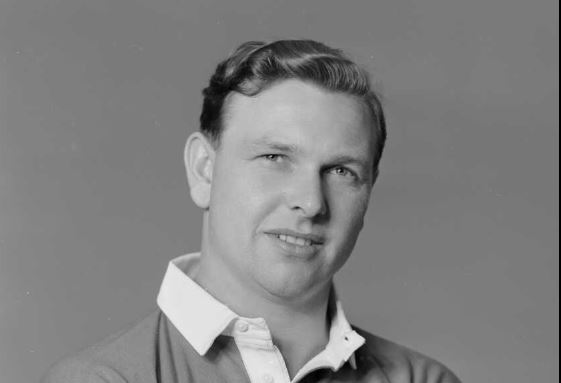Biography
Bleddyn Llewellyn Williams was born on February 22, 1923, in Taffs Well, Wales. Educated at Rydal School in North Wales, he honed his rugby skills which led him to a distinguished career. Williams married Violet and together they had a son and two daughters. After retiring from an illustrious rugby career, he became a revered commentator for the sport. He was awarded an MBE in the 2005 New Year Honours list. Williams passed away on July 6, 2009, at the Holme Tower Medical Center in Cardiff.
Teams and Years
Throughout his career, Williams played center for Cardiff RFC, making 283 appearances over ten seasons, scoring 185 tries. He also held a club try-scoring record of 41 for the 1947-48 season.
International
He earned 22 caps for Wales between 1947 and 1955 and captained the Welsh team on five occasions, winning each time. He also captained the British and Irish Lions during their 1950 tour of Australia and New Zealand.
Bleddyn Williams was a pivotal member of the 1950 British Lions tour to New Zealand and Australia. During the tour, he played in three of the four tests against New Zealand, having missed the first test due to an injury. Furthermore, he played in both tests against Australia. Demonstrating his leadership qualities, Williams took on the role of captain for the third and fourth tests against New Zealand, standing in for the injured Karl Mullen. His contribution on the international stage was significant, and he managed to score a try for the Lions in the first test against Australia, marking a memorable moment in his rugby legacy.
Williams’ performances during the 1950 tour solidified his reputation as one of the game’s greats, and his ability to lead and inspire his team remains a celebrated part of rugby history. His legacy is a testament to his skill, leadership, and the impact he had on the sport, both for Wales and the British Lions.
Most Important Moments in His Sporting Life
One of Williams’ most notable career highlights was captaining Wales to a victory over New Zealand in 1953. Additionally, he led his club, Cardiff, to a win against the All Blacks three weeks prior to this historic triumph. His leadership and skill in the game are still admired and respected today.
The career of Bleddyn Williams and his impact on Welsh rugby continue to be a source of pride and a benchmark for future generations of rugby players. His open style of play and passion for the sport set a precedent that still endures in the spirit of Welsh and British rugby.
